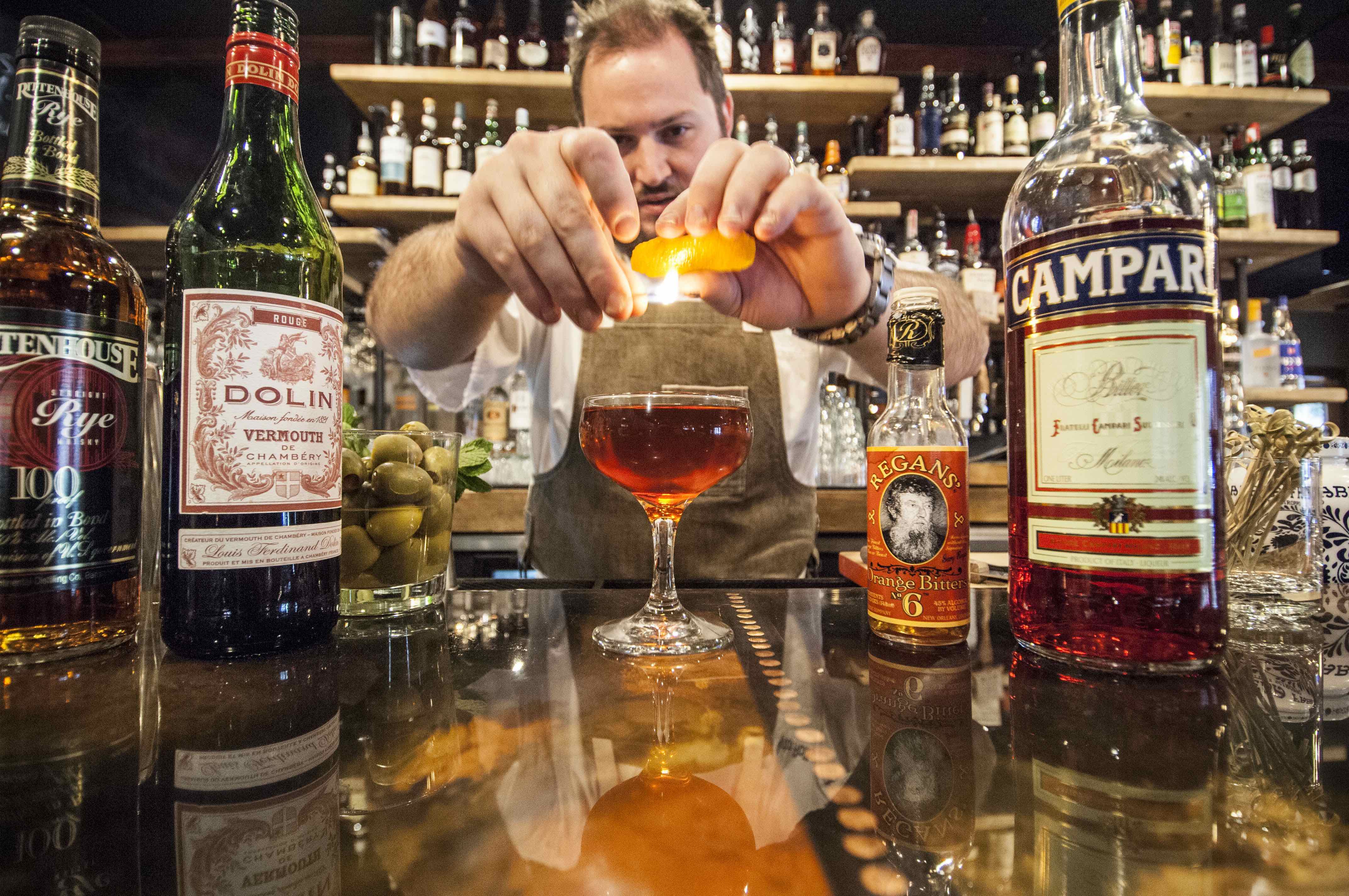Kate Hawkings is so fixated about the world of aperitifs that she has written a book about them complete with the histories of how different drinks have caught our imagination as well as tips on how to re-create aperitif classics at home. She explains why we should all take aperitifs far more seriously than we do.
How did the idea of the book come about?
Sarah Lavelle, the commissioning editor at Quadrille, approached me to write the book. I’d met her at a party where I was banging on about the concept of aperitifs after we’d had a few Campari sodas.
Why did you decide to tackle the area of aperitifs?
It’s kind of in my blood. I come from a family where mealtimes together were very important and generally kicked off with ’noggins’, as my granny called them, either in the sitting room before we ate if it was something of an occasion, or just in the kitchen as we were peeling the potatoes and stirring the sauce. She drank sweet sherry, my mum had Martini Extra Dry on the rocks or a G&T, grandpa had whisky soda and my dad had Campari soda. Sometimes our glamorous uncle Rod would appear with a new girlfriend and a bottle of Champagne. It just seems like such a civilised habit.
Aperitifs are where a meal starts in a restaurant, so often offered as ‘cocktails’ in that context, but most of us, quite rightly, shy away from making cocktails at home – too complicated and involving too many ingredients most of us don’t have readily to hand – whereas I see the aperitif as something distinctly different.
Whether we drink them in bars and restaurants or at home, whether we drink them before a meal or just to mark the end of the day, they should be something simple and easy to prepare; something that won’t knock our socks off with too much alcohol but just takes the edge off the rough edges of life.
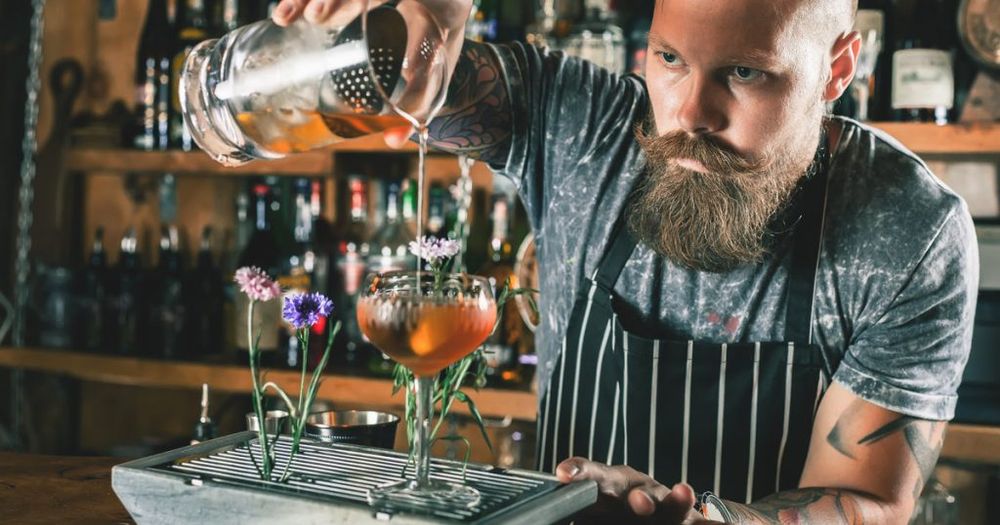
The rise in cocktails and mixologists has also given a new lease of life to aperitifs
What do you hope the book achieves?
The book is very much targeted at the domestic drinker rather than the pros. So many people just drink wine or beer at home, and bloody gin as well, of course. I wanted to open eyes to other things out there.
Although I do give recipes in the book, I think the key to most aperitifs is their simplicity. Just open a bottle of vermouth and sling it over ice, maybe with some tonic if you want it long, or made into a negroni if you need an extra hit; sparkling wine needs just a glass to put it in, but then you kind of need to drink the while bottle – a sharpener of sherry might very well fit the bill better. People are becoming more adventurous in their drinking. I hope this helps them find new and delicious things.
As for a trade perspective – I wouldn’t presume to teach my metaphorical grandmothers to suck eggs!
How have you structured the book to cover all the different types of aperitifs?
There are chapters on what I consider the major categories – vermouths and their cousins, gin, vodka, sparkling wine, sherry etc – then some recipes at the back. But I didn’t want it to be just a list of drinks and recipes – it’s quite text-heavy. Each chapter has a bit of history, and there are a few stories thrown in to, hopefully, make it a good read.
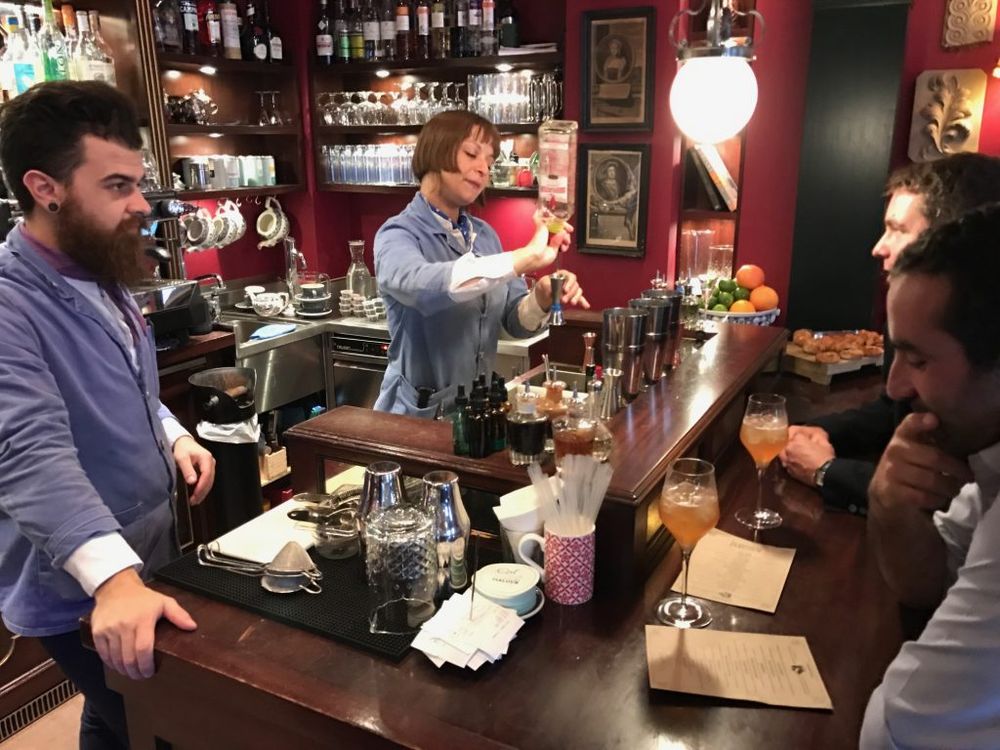
The Zetter Townhouse is one of many London bars that have helped shine a new spotlight on aperitifs
What were the standout facts you found out doing the research?
Being a massive vermouth fan, I love the fact the Romans were probably the first to add wormwood to wine, which they’d drink before embarking on their feasts because wormwood was known as being good for digestion.
Most of the fortified aperitifs we now know started life as medicines of sorts – mad monks and alchemists knocking up brews with medicinal herbs and spices that just so happened to be carried in bases of alcohol. What started as something to take to prevent gastric illness – and god knows, in those days their guts must have needed all the help they could get against the perils of unrefrigerated food and contaminated water – became something fashionable to drink before dinner.
The science stands up, too. We are wired to perceive bitterness as possible toxicity so bitter drinks get the gastric juices flowing. Bubbles work too as they cleanse the palate.
But my favourite discovery was the theory that alcohol is what brought our ancestor apes first down from the trees. When fruit was fully ripe it would drop from its branch to the forest floor and start fermenting, eaten by canny apes who were saved the bother of picking the fruit off the tree and had the alcohol hit as an added bonus. I read it in National Geographic, so it much be true.
Do you think bars and restaurants are missing out on the aperitifs opportunity?
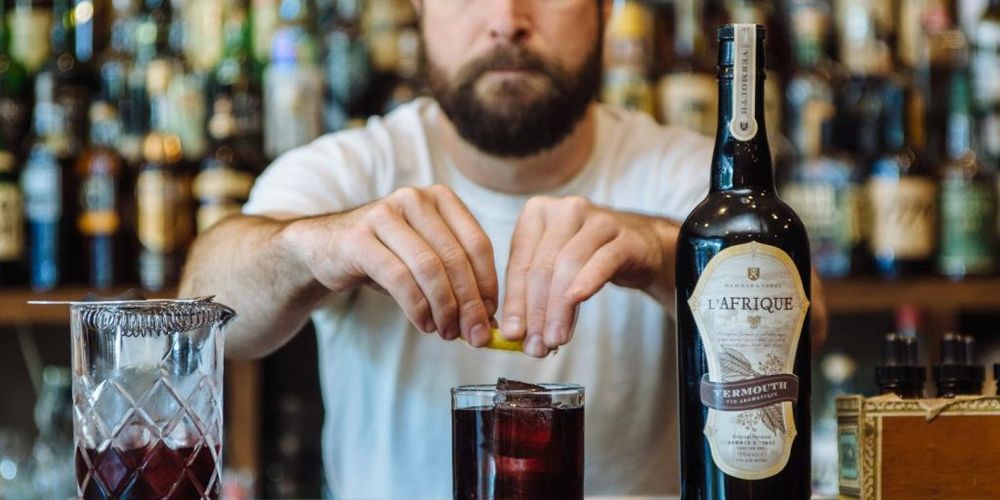
Vermouths can make a great low-alcohol aperitif
Some are, some aren’t. I like the trend of having just one or two aperitifs at the top of a menu to nudge people in that direction. As I said, cocktails are often offered as the only aperitif option. I think there could be more focus on lower-alcohol things like vermouths.
What advice would you give them?
Don’t overwhelm your guests with too much choice when it comes to aperitifs. Short lists make more sense for lots of reasons. As always, it’s the staff who guide their guests so I’d say it’s worth training them with a good grounding in the products and which ones work best in different situations. One of my bugbears is being asked ‘would you like a glass of Champagne to begin?’. So lazy and so predictable – sure, sometimes Champagne just hits the spot, but more often I’d rather be offered something different, and one that won’t break the bank.
It is worth having a separate aperitifs menu?
All depends on the place and what its vibe is.
If so what would be the must have classics to go on an aperitifs menu?
Sherry, vermouths, gin, Campari, pastis.
Would you combine them with food?
No, no, no. That’s the point of aperitifs – they’re to be drunk alone to get the gastric juices flowing, and to appreciated as something lovely to drink in their own right. There’s nothing wrong with a crisp, a nut or maybe a Twiglet to go alongside, and olives, cheese or a bit of charcuterie will never go amiss, but the idea of food matching is a bit of anathema to me.
What are your favourite aperitifs?
Such a tough call. I love vermouths in all their guises because they’re so easy and so versatile. But I guess my desert island aperitif would be Campari soda – bitter, refreshing, and not so dangerous that you can’t have two before dinner, or indeed lunch, without losing your interest in the wine to follow. Then again, a perfect G&T takes a lot of beating…
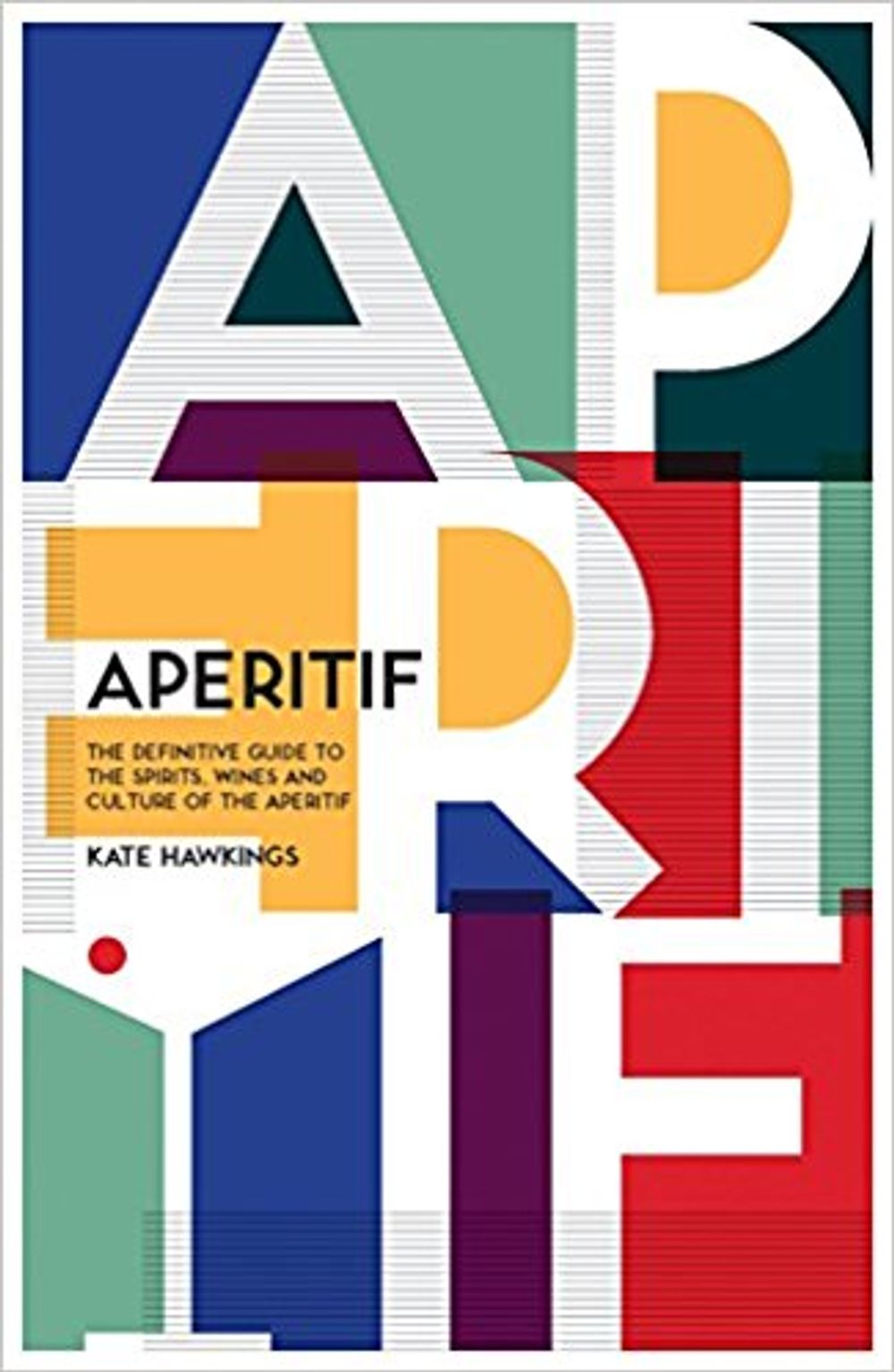
- Aperitif: a spirited guide to the drinks, history and culture of the aperitif is published by Quadrille Publishing, rrp £16.99.
- Kate Hawkings is a regular contributor to a wide range of titles including The Guardian, Independent, Telegraph, Sunday Times, on food, drink travel and wine. She helps runs the Bellita restaurant in Bristol.
